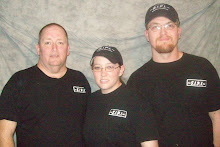
Dom DeLuise, a pudgy actor whose manic grin and air of desperation added comic bounce to films like “The Twelve Chairs,” “Blazing Saddles” and “The Cannonball Run,” died Monday in Los Angeles. He was 75 and lived in Pacific Palisades.
The Associated Press reported that his son Michael had told a television and radio station in Los Angeles that his father had died after a long illness.
Mr. DeLuise first made his mark on television in the early 1960’s as Dominick the Great, an inept but determined magician trying desperately to maintain his poise as one trick after another failed. He created the character for “The Garry Moore Show” and brought it to the CBS variety series “The Entertainers,” where the ensemble cast included Bob Newhart and Carol Burnett, and “The Dean Martin Summer Show.”
Before long Mr. DeLuise was appearing in films, usually in broad comedies as a nervous sidekick, a schmo or a preposterous fraud.
He was a favorite of Mel Brooks, who cast him as the greedy Father Fyodor in “The Twelve Chairs” (1970), the director’s silly assistant in “Silent Movie” (1976), the Emperor Nero in “History of the World — Part I” (1981), the voice of Pizza the Hutt in “Spaceballs” (1987) and the Godfather-like Don Giovanni in “Robin Hood: Men in Tights” (1993).
Burt Reynolds, another fan, teamed up with Mr. DeLuise in several films, including “Smokey and the Bandit II” (1980), “The Cannonball Run” (1981) and “The Best Little Whorehouse in Texas” (1982).
Dominick DeLuise was born in Brooklyn and, after graduating from the High School for Performing Arts in Manhattan, attended Tufts. He broke into show business in the late 1950’s in parts like Tinker the Toymaker in the daytime television show “Tinker’s Workshop.” (The show’s creator and first host, Bob Keeshan, had gone on to create and star in “Captain Kangaroo.”) He then made regular appearances on “The Shari Lewis Show” as a bumbling private eye.
After making his Broadway debut in 1963 as the cheerfully nervous mountebank Muffin T. Ragamuffin in “The Student Gypsy,” he appeared as a nervous flier in the cold-war thriller “Fail-Safe” (1964). This serious role was atypical. His chubby face and hysterical laugh made him a natural for comic roles, like the dimwitted spy in the Doris Day film “The Glass Bottom Boat” (1966). These parts he attacked over the ensuing decades with scene-stealing abandon.
Working with Mr. Reynolds and Mr. Brooks, Mr. DeLuise went on a tear in the 1970s and early 1980s. Gene Wilder cast him as a hammy opera star in “The Adventure of Sherlock Holmes’ Smarter Brother” (1975) and as the mad studio chief Adolf Zitz in “The World’s Greatest Lover” (1977). He made a cameo appearance as a wild-eyed agent in “The Muppet Movie” (1979), took on a tragicomic role as a compulsive eater in “Fatso” (1980), and directed his first film, “Hot Stuff” (1979), in which he also took a starring role opposite Suzanne Pleshette.
Mr. DeLuise’s performances, never marked by restraint, stuck at fortissimo as time went on. Films like “Loose Cannons” (1990), in which he played the obese pornographer Harry (the Hippo) Gutterman, did him no favors, and he reached a nadir in “The Silence of the Hams” (1994), a horror spoof, in which he played Dr. Animal Cannibal Pizza.
As his film career declined, Mr. DeLuise found a creative outlet in food. A talented amateur chef, he began doing cooking demonstrations on television and wrote several cookbooks, including, “Eat This . . . It’ll Make You Feel Better!” (1988) and “Eat This Too!: It’ll Also Make You Feel Better” (1997). He also wrote “Charlie the Caterpillar,” “The Pouch Potato” and other books for children.
In 1965 he married the actress Carol Arthur, who survives him. In addition to his son Michael, he is survived by two other sons. Peter and David, and three grandchildren.
His toughest acting assignment was his first, he told the writer Ronald L. Smith in 1992 for the book “Who’s Who in Comedy.” He was handed the role of a penny in a school play. “The part called for me to roll under a bed as soon as the curtain went up and stay there until I was found in the very last scene,” he said. “It was my hardest role to date. I detested having to be quiet and out of the action for so long.”
New York Times


No comments:
Post a Comment